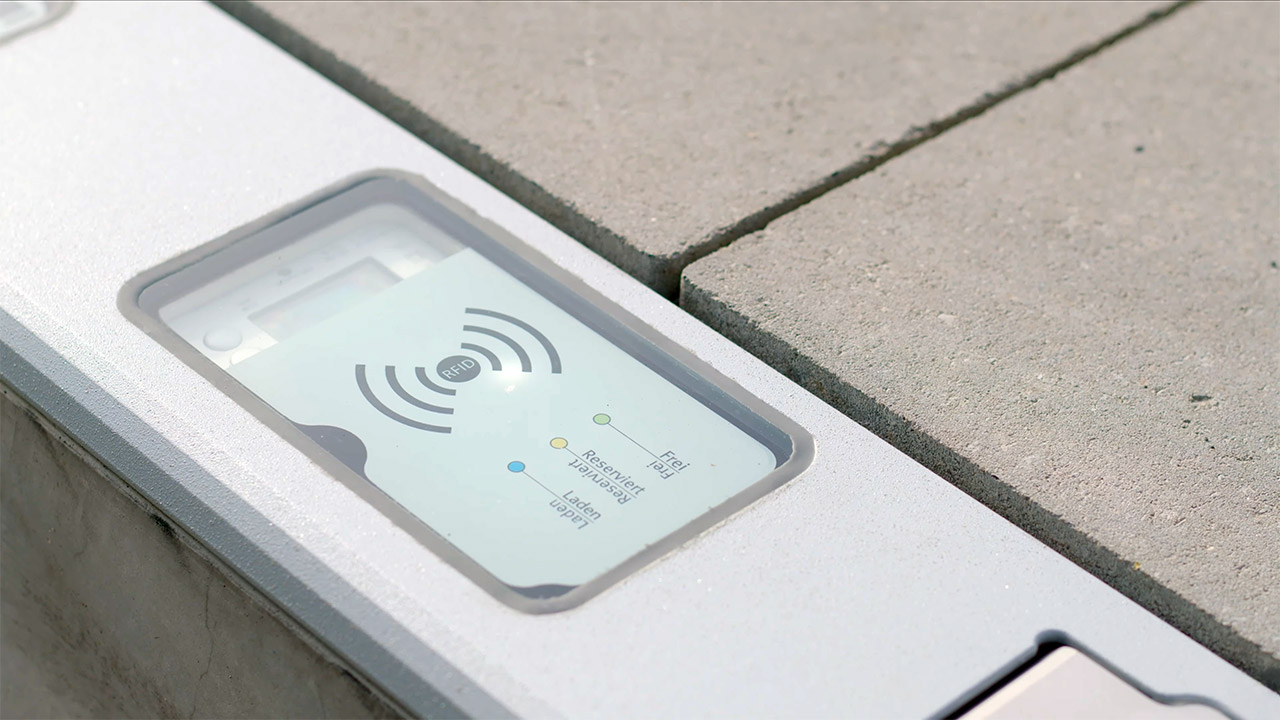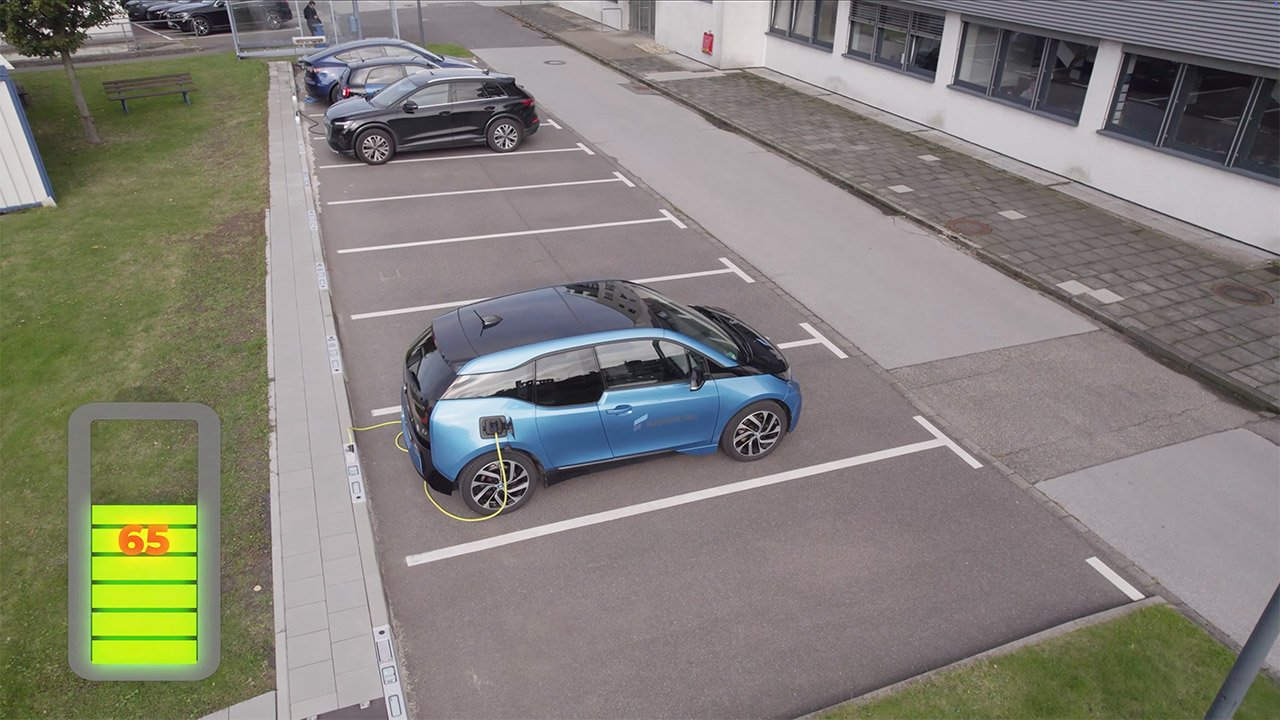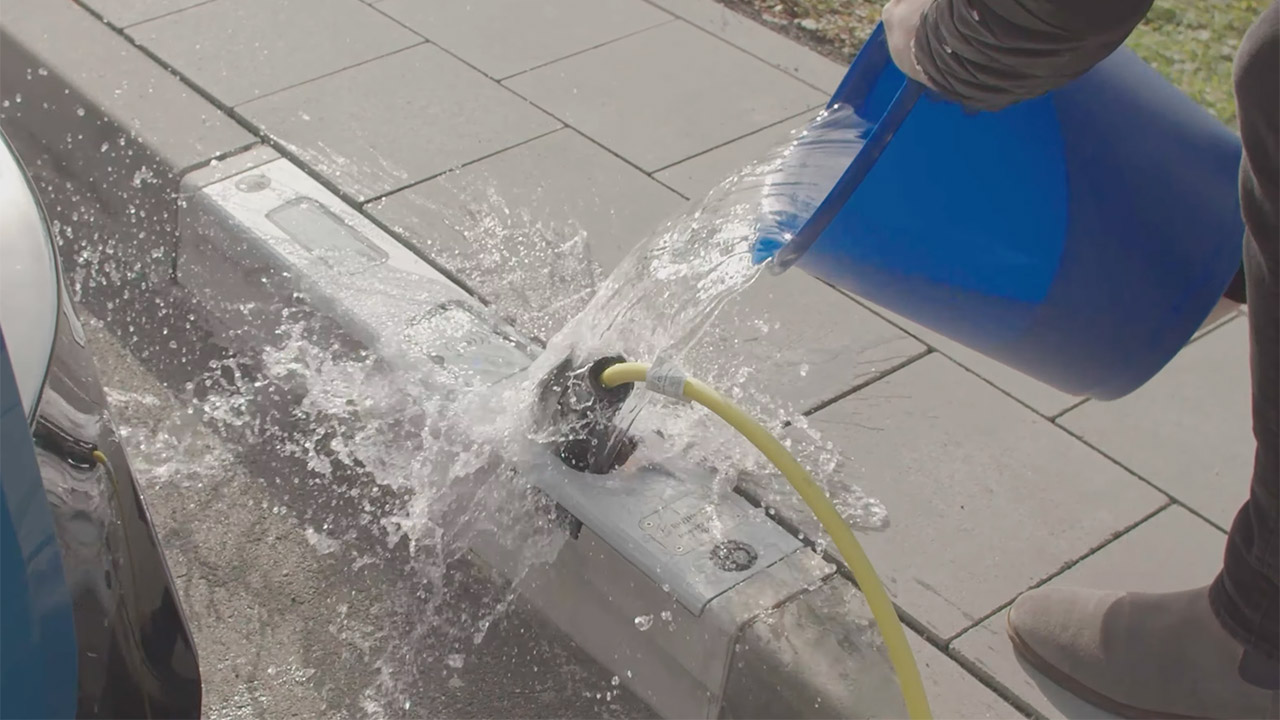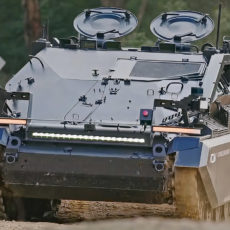
Electric vehicles are everywhere, zipping through city streets with quiet confidence, but charging them remains a puzzle. Home chargers work for those with garages, and fast-charging stations dot highways, but what about city dwellers parked on busy streets? Rheinmetall, a German company known more for tanks than tech, has a clever answer: a charger built right into the curb. After a year-long pilot in Cologne, Germany, this unassuming innovation is ready to reshape how we power EVs in urban jungles.
Rheinmetall’s Curb Charger is as practical as it is subtle. It’s a Level 2 charger—capable of delivering up to 22 kilowatts of power through a 400-volt three-phase connection—disguised as a curbstone. Unlike bulky charging poles that hog sidewalk space, this 176-pound block of aluminum and stainless steel blends into the streetscape. Drivers plug in their own cable, a design choice that keeps things sleek since most EVs come with compatible cords. A smartphone app, QR code, or RFID card activates the charger, making it as user-friendly as ordering coffee. “Our product integrates the charger electronics into a standard kerbstone to enable the charging of electric vehicles directly at the roadside—without obstructive bollards, intrusion into the pedestrian area, or compromises in terms of safety or aesthetics,” says Christoph Müller, CEO of Rheinmetall’s Power Systems division.
No products found.

Durability is a standout feature. Urban environments are harsh—rain, snow, and reckless drivers are unforgiving. The Curb Charger boasts an IP68 rating, meaning it can sit in over three feet of water for 30 minutes without flinching. Built-in drains keep it functional during downpours, while a cooling system prevents overheating in summer heat, and a heater ensures it works in freezing winters. During Cologne’s pilot, four units achieved 99% uptime, powering over 2,800 charging sessions—roughly two per day per charger—delivering about 50 megawatt-hours of energy, enough for 120 kilometers of range per session.

Maintenance is another win. The Curb Charger’s modular design, with its CurbSwap connector, lets operators swap out faulty units in minutes, minimizing downtime. Cities can now slap down “dummy curbs” and kit them out with charging modules later as electric vehicle demand ramps up—a clever, scalable fix for the urban space crunch. Old-school chargers hog precious sidewalk real estate, often needing bulky bollards to keep them safe. Rheinmetall’s approach is sneakier, weaving charging tech right into the concrete that’s already there, no extra clutter required. “This is how we are contributing to the mobility transition with innovative solutions,” Müller adds. “Urban charging infrastructure is rethought: space-saving, robust, barrier-free—and integrated into existing urban structures.”

Cologne’s year-long trial, launched in April 2024 with TankE GmbH and the city, proved the concept. Four chargers in Cologne-Lindenthal handled real-world conditions with ease, from torrential rain to sub-zero nights. They weren’t just functional; they were popular, averaging 19 kilowatt-hours per charge. Drivers appreciated the seamless integration—no tripping over cables, no parking hassles. Ascan Egerer, Cologne’s Alderman for Mobility, noted, “We are a city in transition and want to actively shape modern, environmentally friendly mobility. For us, the curb charger has the great advantage as it can be used in the existing infrastructure of the public road space.”
Each unit has a 4G modem, Ethernet port, and supports the OCPP 1.6 standard for real-time data on charging sessions and remote software updates. This isn’t just a charger; it’s a smart node in a city’s energy grid. While it lacks the raw speed of Level 3 fast chargers, its 22-kilowatt output is plenty for overnight or workday top-ups, perfect for apartment dwellers or commuters.
[Source]












